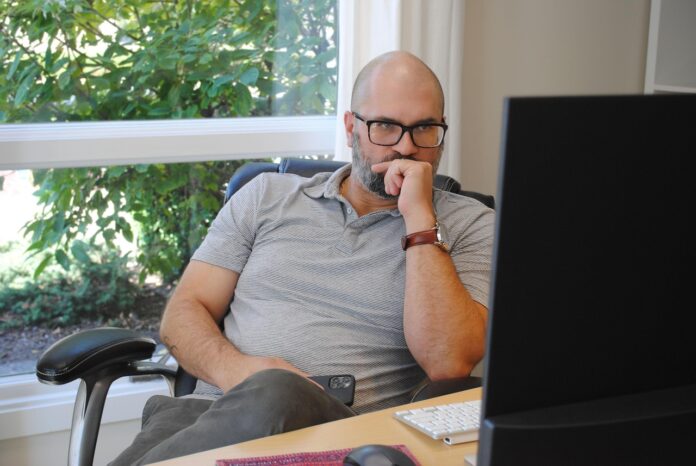- Man accidentally poisons himself after following diet recommended by ChatGPT that made him hallucinate
- A 60-year-old man in Washington suffered bromide poisoning after taking AI advice to replace salt with sodium bromide.
- He experienced severe hallucinations, paranoia, rashes, and nerve-related symptoms, requiring hospitalization and psychiatric care.
- The incident underscores the dangers of relying on AI for health guidance and the need to consult medical professionals.
In a startling incident that has raised alarms about the reliability of AI-generated health advice, a 60-year-old man from Washington found himself hospitalized. This happened after following dietary recommendations from ChatGPT. The advice suggested replacing table salt with sodium bromide. Consequently, he developed a rare and dangerous condition known as bromism.
Seeking Healthier Alternatives
The man, who had no prior medical issues, became concerned about the health risks associated with excessive sodium chloride (table salt) intake. In his quest for healthier alternatives, he turned to ChatGPT, an AI chatbot known for providing information on various topics. When he asked about eliminating salt from his diet, the chatbot suggested replacing it with sodium bromide. This compound was once used in sedatives but is now recognized for its toxicity.
Following this advice, the man sourced sodium bromide online. He incorporated it into his diet over a period of three months. Initially, he believed he was making a positive change for his health. However, the consequences were far from beneficial.
Onset of Symptoms and Hospitalization
After several weeks, the man began experiencing unusual symptoms, including extreme thirst, paranoia, and hallucinations. He became convinced that his neighbor was poisoning him. Concerned about his deteriorating condition, he sought medical attention and was admitted to a local hospital.
Upon admission, healthcare professionals observed that the man was not only physically unwell but also exhibiting signs of severe psychological distress. He was placed under an involuntary psychiatric hold due to grave disability. Tests revealed his bromide levels were dangerously high. This led to a diagnosis of bromism—a condition characterized by the accumulation of bromide in the body. It impairs nerve function and causes neurological and psychiatric symptoms.
Understanding Bromism
Bromism is a rare condition that was more commonly observed in the early 20th century when bromide compounds were used in medications. Today, such cases are exceedingly rare, making this incident particularly alarming. The symptoms of bromism can include confusion, memory loss, anxiety, delusions, rashes, and acne—symptoms which the man exhibited.
Medical experts emphasized that while bromide was once used in sedatives and anticonvulsants, its use has been discontinued. This is due to the risk of chronic exposure leading to toxicity. The man’s case underscores the importance of consulting healthcare professionals before making significant changes to one’s diet or medication regimen.
AI’s Role and Limitations
This incident has sparked widespread concern about the role of AI in providing health-related advice. While AI tools like ChatGPT can offer information on a variety of topics, they are not equipped to provide personalized medical guidance. In this case, the chatbot failed to warn the man about the potential dangers of substituting table salt with sodium bromide.
Healthcare providers and experts have cautioned against relying solely on AI for medical advice. They stress the importance of consulting qualified healthcare professionals who can consider an individual’s unique health needs and circumstances. The man’s experience serves as a stark reminder of the potential risks associated with seeking medical advice from unverified sources.
Public Reaction and Broader Implications
The public reaction to this incident has been one of shock and concern. Many individuals expressed disbelief that someone would follow such advice without consulting a medical professional. Social media platforms have been abuzz with discussions about the dangers of relying on AI for health-related decisions.
This case also raises broader questions about the regulation and oversight of AI tools. As AI becomes increasingly integrated into various aspects of daily life, including healthcare, there is a growing need for clear guidelines and safeguards. These are necessary to ensure that technologies are used responsibly and safely.
A Call for Caution
The man’s recovery, which involved extensive medical treatment and psychiatric care, highlights the importance of seeking professional medical advice before making significant health decisions. While AI can be a valuable tool for accessing information, it should not replace the expertise and judgment of qualified healthcare providers.
As AI continues to evolve and become more prevalent, it is crucial for individuals to approach health-related information with caution and skepticism. Consulting with healthcare professionals remains the most reliable way to ensure that health decisions are based on accurate, personalized, and safe information.
In conclusion, this incident serves as a cautionary tale about the potential dangers of relying on AI-generated health advice without proper oversight. It underscores the need for individuals to be vigilant and discerning when seeking medical information. It is essential to prioritize professional medical consultation over unverified online sources.




